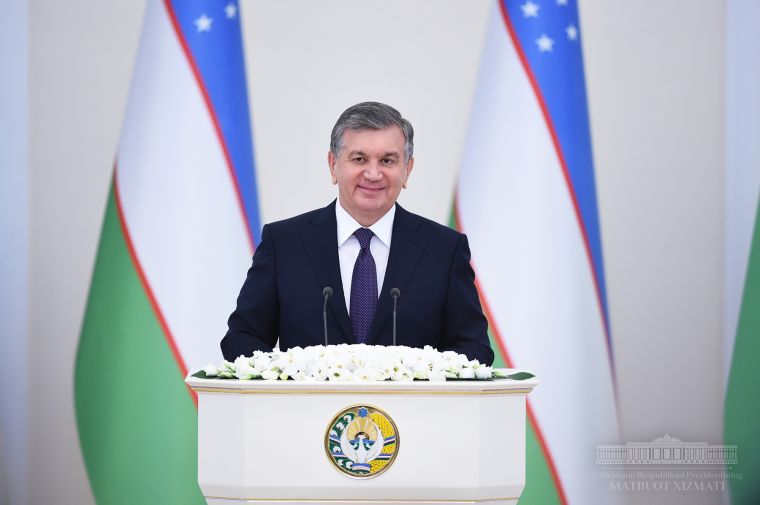Tashkent city



First of all, Shavkat Mirziyoyev started his speech with the information about high level meetings: 21 high level meetings, 60 state level and international organization heads meetings.
More than 400 investment agreements valued at 60 bln US dollars, 40 “road map” execution plans have been developed. After currency liberalization the buy-sell operations has increased 1,5 times in avarege making up 1,3 bln US dollars, state gold-currency reserves made up 1,1 bln US dollars.
This year 12 free economic zones, 45 industrial zones have been established. 50 more new industrial zones are being organized.
As a result of constructing new industrial zones more than 336 thousand new vacancies have been filled. It was significant contribution for the solution of employment issues.
Later President Shavkat Mirziyoyev explained why economic houses are being built in rural areas. “The houses we previously built were expensive and they were not available to common citizens. As a result only rich people bought those houses. We decided to build houses for ordinary citizens like teachers and doctors” noted the leader of the country. Particularly, more than 24 thousand new economic houses have been built in rural areas. 187 multi-storey residential buildings were raised where approximately 8 thousand families moved to thouse houses.
Talking about international loans and credits President noted that a country which mismanages foreign money will encounter serious problems falling into debts. For this reason Shavkat Mirziyoyev noted to pay great attention to this sphere and avoid any mistakes. As an example he analyzed the activity of gas-chemical complex in Ustyurt, Karakalpakstan which is not giving efficient results. Another sphere is credits allocated for drinking water supplies: for the last 10 years 17 projects valued at 618 mln US dollars, unfortunately most of the projecs have not been finished until the end.
Notable results have been observed in the relationships with China, South Korea and Turkey. It is worth noting that embassies are working with new principles.
According to IMF Uzbekistan is on the 134th place among 187 states by GDP per capita. Unfortunately, for the country with rich resources it is not appropriate place.
In conclusion, it should be noted that the speech of our President has become historical which analyzed all spheres of life with practical suggestions for improvement.
Press Service,
Muslim Board of Uzbekistan

In the July 27, 1937 issue of his weekly journal Harijan, Mahatma Gandhi praised Islamic Caliphs Abu Bakar (RA) and Umar Farooq (RA) as examples of humble and responsible leadership.
In a rare reference to Islamic history, Mahatma Gandhi praised Caliphs Abu Bakar and Umar Farooq as examples of simple and honest leadership.
He made this statement in the July 27, 1937 issue of his weekly journal, Harijan, offering advice to Indian National Congress leaders as they began to hold public office.
In that issue of Harijan, Gandhi wrote:
“I cannot give you the reference of Ram Chandar or Krishna, because they were not considered as historical figures. I cannot help it but to present to you the names of (Hazrat) Abu Bakar (RA) and (Hazrat) Umar Farooq (RA). They were leaders of a vast Empire, yet they lived a life of austerity.” Harijan – Dated: 27.07.1937
This statement came during an important moment in India’s history. In 1937, the Indian National Congress formed governments in several provinces for the first time under British rule, following elections held under the Government of India Act, 1935.
Gandhi, always cautious about the moral health of leaders, urged Congress members not to be consumed by power or luxury. He used the examples of Caliphs Abu Bakar and Umar Farooq to remind them that true leaders live simply and serve the people.
Harijan was Gandhi’s weekly newspaper, launched in 1933 to support his social reform campaigns — especially against untouchability. The journal regularly featured Gandhi’s views on religion, politics, and ethics.
The journal was published in English, along with versions in Hindi (Harijan Sewak) and Gujarati (Harijanbandhu), and ran until 1955.
This was not the only time Gandhi showed appreciation for Islamic values. He often quoted the Quran, Prophet Muhammad (PBUH), and his companions in speeches and writings.
